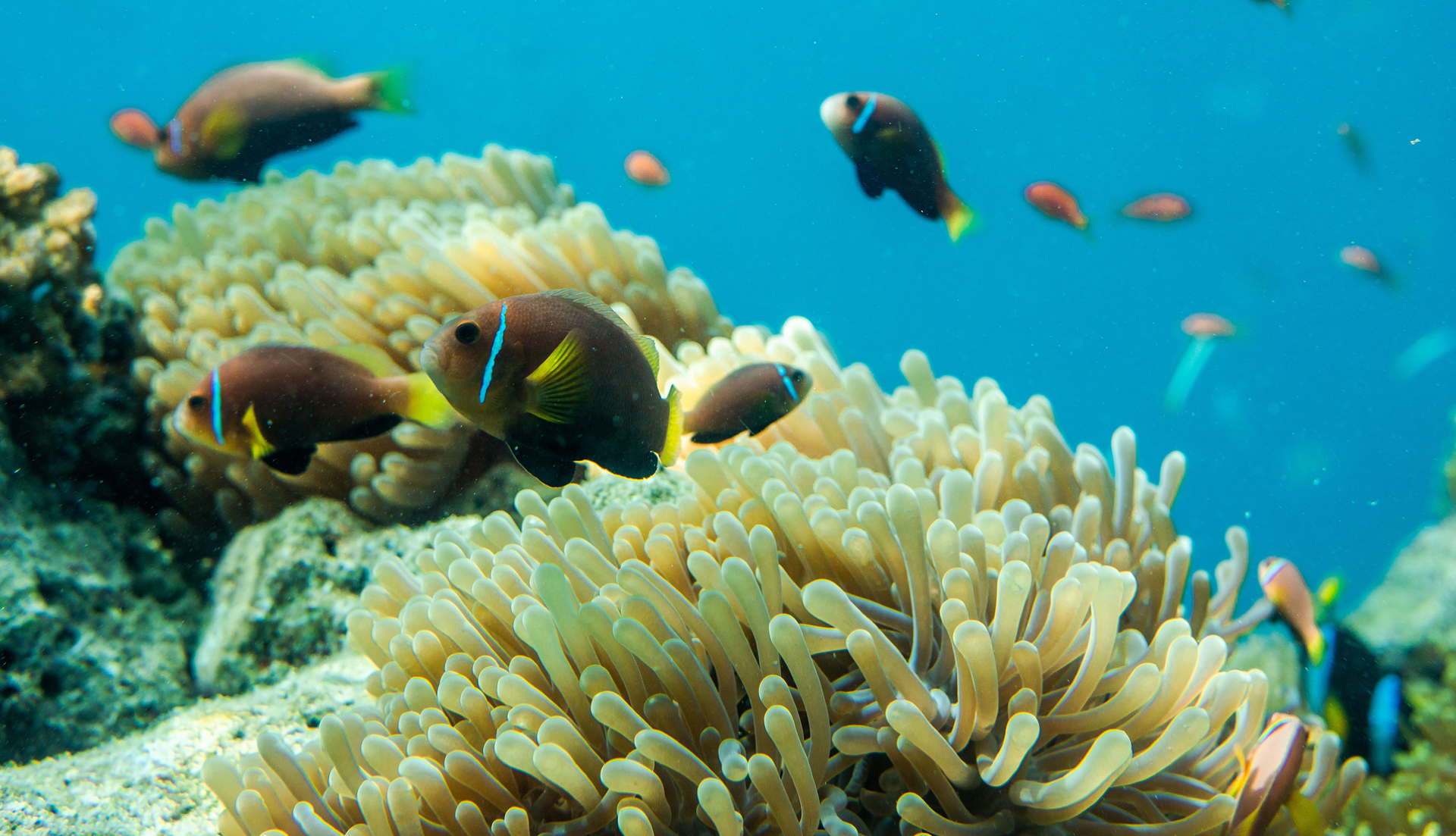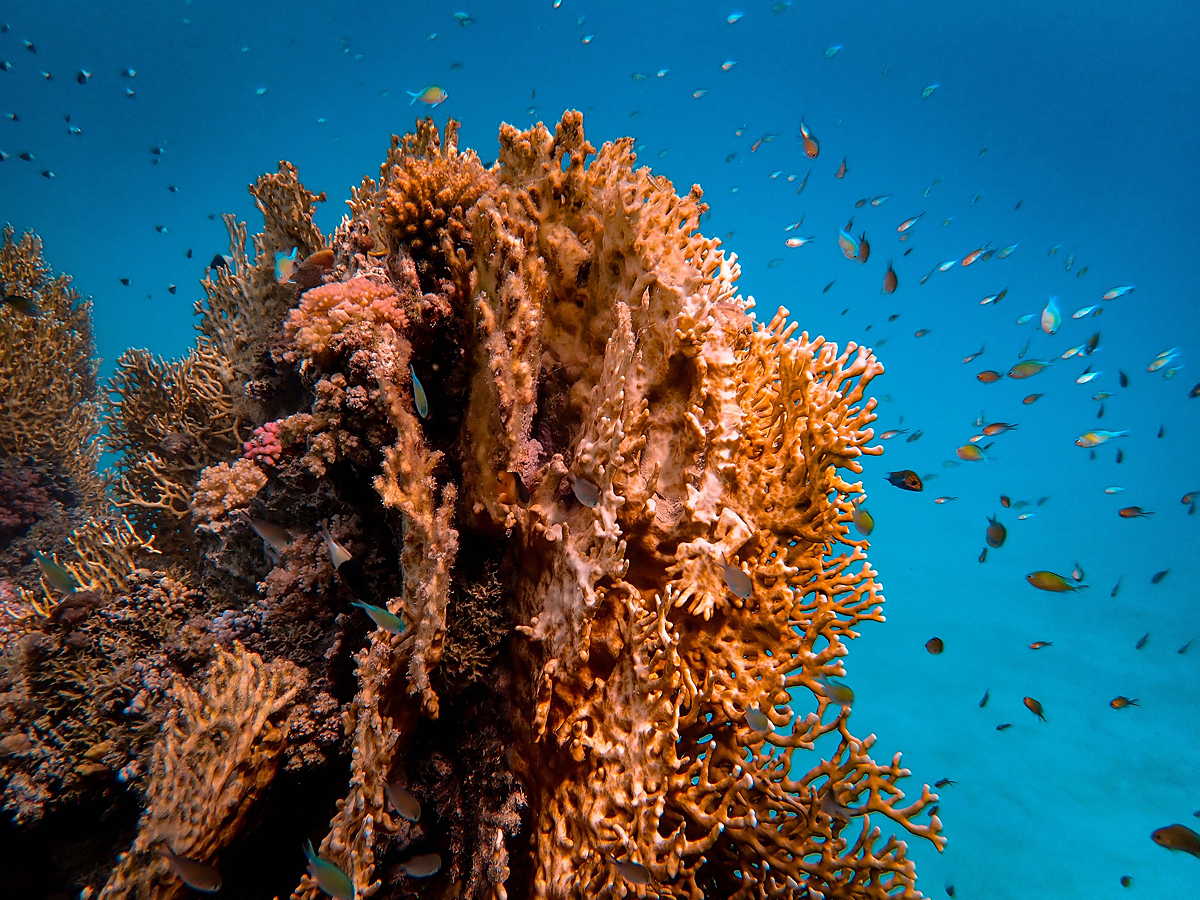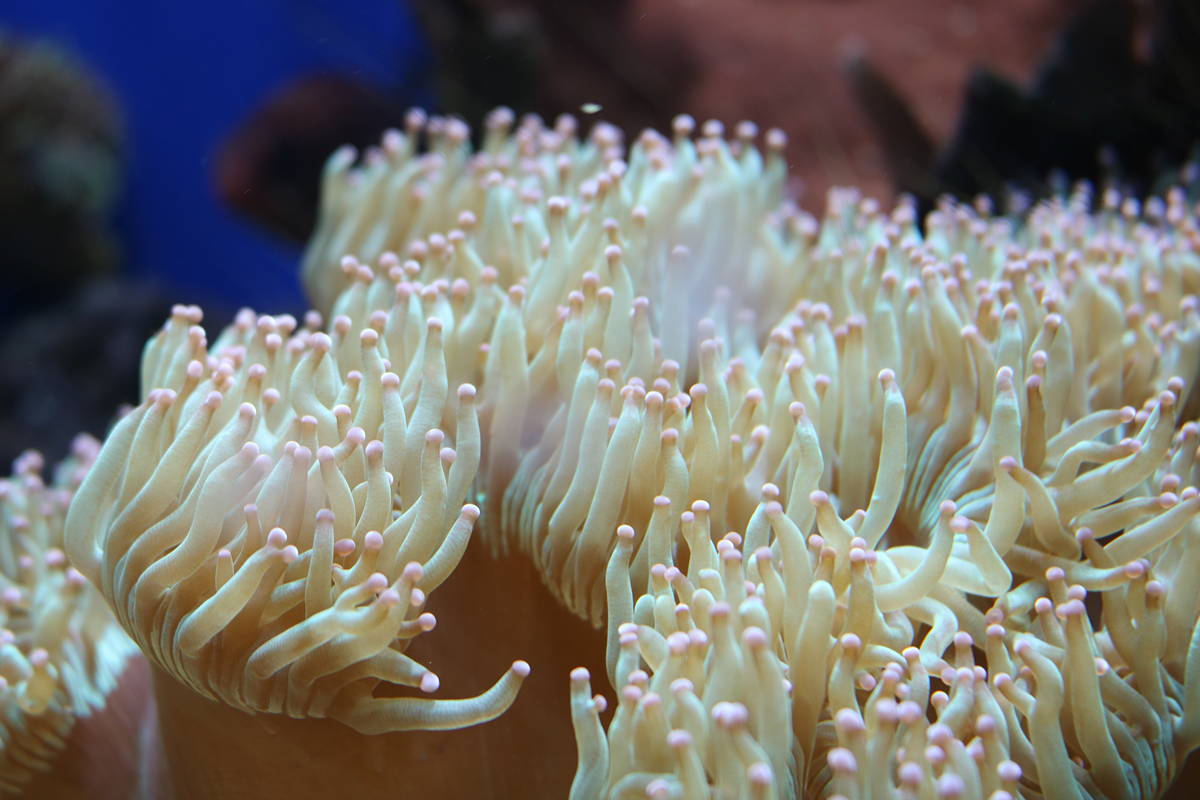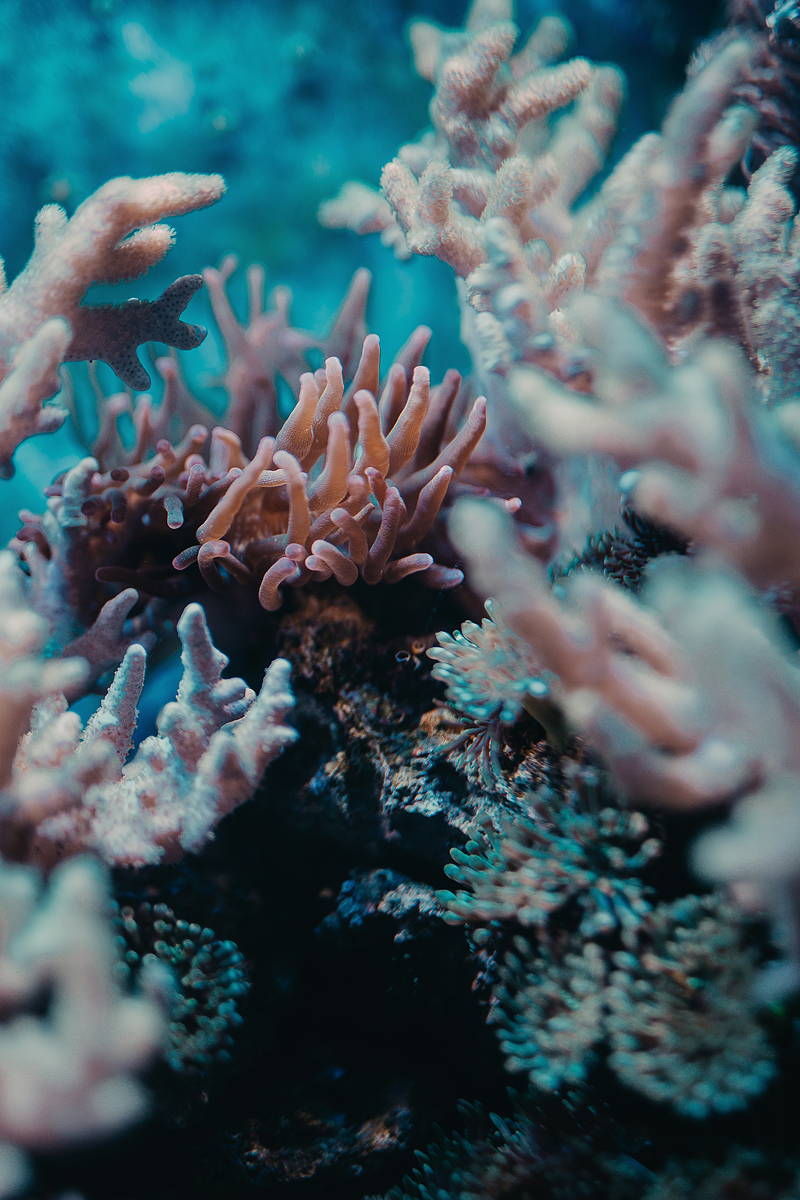
Coral Gardening | A Path to Preserve Our Coral Reefs
Coral reefs fill our oceans with captivating shapes and vibrant colours, hosting a vast array of marine life essential for the underwater ecosystem. Yet, each day, the bleaching of corals intensifies, posing significant threats to these vital marine environments. Coral gardening is responding by restoring corals through innovative methods. Learn how they do it!
Often hailed as the “rainforests of the sea,” these reefs are home to approximately 25%of all marine species. Despite their ecological significance, coral reefs are delicate ecosystems facing considerable threats. Rising sea temperatures and pollution contribute to environmental stress, leading to coral bleaching and even dying. Alarmingly, the UN Environmental Program predicts a 70-90% decline in live coral on reefs by 2050, posing a grave risk to entire reef ecosystems. In response to this crisis, coral gardeners are emerging as crucial stewards of reef conservation. These sea farmers are cultivating coral polyps, contributing to restoring reefs worldwide.

WHAT IS CORAL GARDENING?
Marine Biologist Baruch Rinkevich explains that Coral gardening is a method of restoring reefs by transferring coral fragments or whole colonies from a donor reef to a damaged one. This can occur directly or after a growth period in a nursery where the corals reach a certain size before relocating them. Some coral gardening efforts use live fragments naturally broken off by waves or storms, termed “corals of opportunity”. Conversely, other gardening efforts involve deliberately breaking corals from live colonies. Two primary gardening practices include ocean-based nurseries, where coral fragments are grown underwater and attached to steel structures for monitoring, and land-based nurseries.
In more detail, land-based nurseries are usually more efficient. Since they are situated in laboratories or farms, it facilitates quicker processes like microfragmenting. Corals in ocean nurseries may require six to 12 months to mature before researchers can transplant them to damaged reefs for further growth. Fast growth is crucial for reef restoration, especially since most corals naturally grow at a pace of about one inch per year. Furthermore, land-based nurseries are shielded from the challenges posed by fluctuating ocean temperatures, predators, storms, accidents, or other potential disruptions.
EXPERTS IN CORAL GARDENING AROUND THE WORLD
OCEAN QUEST
In 2010, Anuar Abdullah laid the foundation for Ocean Quest Global in Malaysia, setting in motion a dynamic force dedicated to marine conservation. Having spent most of his life on the coral reefs of Malaysia, he possesses a profound understanding of their intricate behaviours and life cycles, backed by years of personal research.
In Abdullah’s vision, their journey transcends a solitary pursuit, echoing the collective commitment of a global community dedicated to the preservation of our precious marine ecosystems. Therefore, he brought together individuals enthusiastic about embracing the challenge and contributing to his extensive decades of coral research. Embracing the motto “diving with a purpose,” Ocean Quest Global emphasises that its pursuit is a global endeavour. Friends and supporters worldwide unite in a shared mission to save the ocean for future generations.
Currently, they are operating in seven countries across Southeast Asia and the Indian Ocean. Ocean Quest challenges conventional coral gardening methods, such as metal grids, PVC piping, leather, and electrolysis. Instead, the organisation pioneers its techniques, methodology, and materials for coral reef rehabilitation, prioritising natural and non-invasive restoration. They are actively engaged in the rejuvenation of Maya Bay on Ko Phi Phi Leh Island, Thailand, in collaboration with Marine National Parks. The organisation offers programs and courses focused on the sustainable future of corals. The goal is to give back to the local communities while also protecting the marine environment.


CORAL GARDENERS
Titouan Bernicot, founder of Coral Gardeners, discovered his passion for marine conservation at an early age while growing up amidst the stunning beauty of Tahiti in French Polynesia. Witnessing the loss of vibrant colours in the coral reefs due to the detrimental effects of pollution and climate change, Bernicot wanted to make a change. In 2017, he established Coral Gardeners, an initiative that would later become a global source of inspiration for coral conservation.
Significantly, they have planted over 30,980 resilient corals, using state-of-the-art techniques. The organisation is dedicated to expanding restoration globally and empowering local communities to become coral gardeners themselves. At the core of Coral Gardeners’ mission is CG Labs, a research initiative developing innovative tools and techniques to enhance coral knowledge and improve reef restoration and monitoring methodologies. Through an open-source, collaborative approach, scientists, and engineers work tirelessly to optimise and scale up coral reef conservation efforts.
Moreover, Coral Gardeners is about creating awareness. They have reached over 200 million people globally, inspiring action against climate change. They use various media channels and unconventional collaborations to ensure that ocean conservation becomes an undeniable priority. Coral Gardeners also want to make a local impact. They engage islanders through hands-on workshops, educating them about the crucial role of coral reefs.
OCEAN GARDENERS
In the aftermath of the 1997-1998 economic crisis, many in Indonesia were grappling with income losses, particularly within coastal communities. Vincent Chalias saw an opportunity for transformation. Drawing on his background in marine aquaculture, he envisioned shifting the wild live coral collection for aquariums to a farm-based industry, offering a new source of income for coastal residents. His innovative idea involved aquaculturing corals, eliminating the need to extract them from the reefs. Consequently, the corals they grew could then be utilised for both replanting and restoring damaged reefs.
Enter Mr. Manumudhita, a retired director of the fisheries department turned head of the Bali Fishermen Associations. He is dedicated to safeguarding the livelihoods of fishermen nationwide. Together, they initiated the first trial in Nusa Dua in 2000, installing numerous nurseries across Indonesia to cultivate a diverse array of coral species. The birth of Ocean Gardener in 2016 marked a pivotal moment—a non-profit organisation committed to coral reef education. Leveraging two decades of experience in Coral Farming in Indonesia, the organisation uses coral farms for both educational and reef restoration purposes.
Fast forward to today, Ocean Gardener comprises a diverse team of marine biologists, professional divers, coral farmers, conservationists, and students, united by a common goal: to educate people worldwide about coral and the ecosystems they sustain. Recognising that proper coral education is key to effective protection, Ocean Gardener strives to reach diverse audiences. Based in Bali, Indonesia, the NGO has planted over 80,000 coral fragments. As they continue their educational efforts, they offer coral restoration courses. Through a four-week immersive program, visitors can learn about coral identification and coral gardening.
IS CORAL GARDENING EFFECTIVE?
When conducted through proper methods, coral gardening is a non-invasive practice, with low risk to the ecosystem. Later, the cultivated corals from nurseries are transplanted into the ecosystem and adapted to the wild colonies. Notably, one of its significant advantages is the ability to conduct extensive coral research, enhancing their resilience. Dr. Rinkevich emphasises the crucial role of adaptation-based reef restoration (ABRR) in ensuring the future health of reef ecosystems. This entails deliberately selecting resilient coral fragments from stress-tolerant reefs, allowing researchers to nurture corals that adapt the best to the challenges of climate change. Consequently, the engineered reefs have a greater diversity and resilience, offering solutions to issues like rising ocean temperatures.
As mentioned by the UNEP, it remains crucial for decision-makers to continue urgent climate action to ensure the survival of coral reefs. On an individual level, there are also opportunities for us to contribute. Coral gardeners worldwide are always seeking passionate individuals willing to join their conservation efforts. Additionally, we can aid coral preservation by refraining from purchasing corals. When engaging in marine activities such as diving, it’s essential to avoid touching or causing damage to coral formations. Also, by participating in beach clean-ups, we can further help keep coastal areas free of pollutants, contributing to the overall health of marine ecosystems. Crucially, we can actively raise awareness about coral conservation and their importance in our marine environment.
Highlight Image:
© Ishan Seefromthesky via Unsplash
+ Words:
Francesco Witt
Luxiders Magazine






